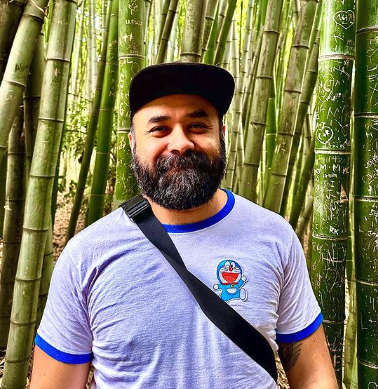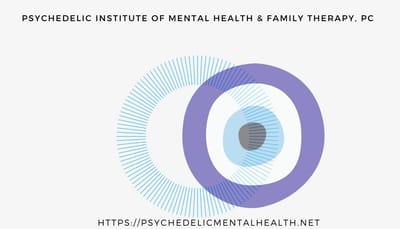How Ketamine Assisted Therapy Helped Me Process Family Trauma

It is very hard to grow up without trauma, and it can shape our behavior as we move through our lives. In my case I believe there is a lot of family trauma, that has come from generations before me. Now that it is my turn as a grown up to carry this inheritance, I can decide if I will continue the cycle or if I will break the cycle. Ketamine assisted therapy has helped me find a way to break the cycle and move forward.
To add some context, I am a 38-year-old gay man in a non-traditional relationship. I come from Mexico, I grew up at the end of the '80s all through the 90's. My family is very traditional, vaguely catholic but with big macho foundations. Growing up, my father would not show a lot of affection, classic toxic masculinity that has never been questioned or worked on because our parent's generation does not believe in mental health. Our fathers bottled up everything and they thought their issues never had consequences in our upbringing and traumas.
I have felt the weight of my father's sadness. As I see him age, I notice how hard it has been for him growing up as an orphan, we know some stories from his childhood and they are all full of trauma. Now, as an adult, I see how this trauma influenced the kind of father he was, and how it has affected me.Inherited from one generation to another, like some invisible weight given from the elders that we have to continue to carry, my father's struggles have had lasting effects on me.
I have been working on this in therapy but lately these feelings felt like they were too much and were causing me to burn out faster and feel more anxious.
I started Ketamine Assisted Therapy, and a journey was coming up soon. I thought it would be worth going into the upcoming session with the intention to work out some of these heavy feelings.
The Journey in itself is something you want to treat with respect. In the end you are doing something to help you, you are doing something for yourself. In the days leading up to a session, I try not to watch media that can upset me or distract me too much from my intentions, as that could just cause some turbulence in my journey, I think. On the day of the journey, I like to stay focused, eat early, and nothing too heavy, and not too close to the journey. I try to have a ritual and clean my space, have some incense, and journal my intentions and thoughts before I take the medicine.
The journey lasts usually one or two hours. There is a safety protocol I follow and I always have a sober sitter looking in on my every 20 minutes. Once I take the medicine, I put on my headphones, music, and eye mask. Everything was ready.
I began this journey with the intention of accepting my father and acknowledging his trauma which has passed on to me. As I grow up into adulthood, I understand how this family trauma is shows up in the lack of positive masculine figures in my life. I want to accept their flaws and settle into the reality that I myself live in.
The journey was tough. As I settled in, I saw images of my dad. I saw him grow up. I imagined the stories that I know by heart because of how many times I have heard them. I saw him grow up an orphan, I saw him in a religious orphanage, I saw his adventures but I also saw all the heavy things that lay behind the man he is today. I see images of him struggling with his feelings. I see him get quiet when he doesn't know how to react. I see him censor himself and his emotions.
I move on from my father to others in my life, and I see how similar their backgrounds are. I see how they have have so much trauma and how that trauma directly informs who they are today and the challenges they have day by day. I start feeling my body shake, I start crying, I start sobbing, and I feel so much sadness. I see images of how all this has affected me.
I continue to sob, harder, I feel like I'm letting a lot of it out. In my head, I saw all these emotions, their emotions, as a backpack, and how I felt I needed to carry it for them. I saw myself realizing that their trauma is not mine to carry. I can try to help, but it's not mine to take. I don't need to continue the cycle of family trauma and toxic masculinity, I can break that and be my version of what I believe masculine is and break the inherited trauma of not knowing how to express myself because I'm afraid of looking weak.
Ketamine works in a way were it helps me put things into perspective. I think that the process that I went through that day helped me put into perspective this family trauma I came in with. All these expectations to perform a person I am not, all these old ideas are not mine and they don't have to be mine.
As I came back into my body, I felt flushed. I felt like all this weight needed to come out and it came out crying. I felt lighter. I felt like I was no longer carrying weight I didn't need to carry. Life continues to be the same after the journey. My dad is still the same person. I am still in the same body and place but the perspective I have on the issue that I wanted to confront is different. I understand parts of myself better and that is one step closer to healing the parts of me that need healing, and to continue onto the next step of my mental health practice.
